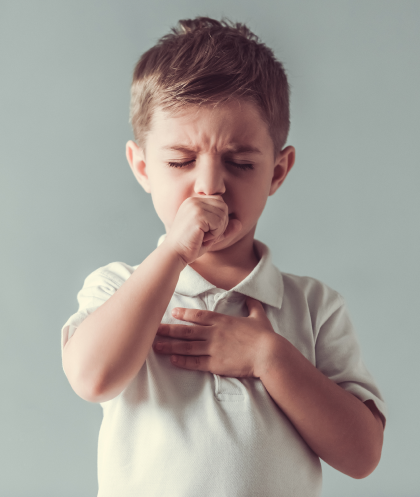
77 Wimpole Street,
London, W1G 9RU


Respiratory Conditions
Co-sleeping or sharing a bed with your baby can be a controversial topic among new parents. It is important to be aware of both sides of the argument, but ultimately the right choice will depend on what suits you and your baby best.
If you’re a smoker there are lots of good reasons to try and quit. If you’re hoping to get pregnant, or are already pregnant, there’s an even better reason: the health of your unborn baby.
Hayfever is always unpleasant, but it can be even more worrying if your child also has asthma. What steps can you take to protect your child from their pollen allergy?
Respiratory conditions are very common in both adults and children, but younger lungs can be more vulnerable to problems such as infection and the effects can be more serious.
Asthma symptoms can often change with the seasons, depending on what triggers your child’s condition. Sometimes it can be worse in the spring and summer, when there’s lots of pollen in the air.
Air pollution is a growing problem, but we are becoming more aware of the dangers. As many as 40,000 deaths every year in the UK could be linked to air pollution.
Every parent knows that there will be times when your child just won’t go to sleep. However, some children have more serious sleep problems that can keep going for weeks or months at a time.
Viral infections in children can happen at any time of year, although they are more common in the winter months. If your child does fall ill with a summer cold, flu or another infection then you will usually be able to manage the symptoms at home, just as you do in summer.
One reason why viral infections in children can be very troublesome is that they tend to spread very rapidly, especially between children who are attending the same school, nursery or playgroup. Understanding how viral infections pass between children can help us to prevent the germs from spreading.
It is difficult to see the positive side of bacterial or viral infection in children when you are dealing with runny noses, vomiting and crankiness. However, the infections that we have as children may actually have some benefits for our health.
It might seem obvious, but keeping your child’s bedroom dark is one of the best ways to prevent sleep disorders in children. Anything from a bright light to a dim screen in the corner can cause sleep problems.
Cough medicine might seem like the obvious answer when your child is feeling ill, but there are some good reasons to avoid heading to the pharmacy when your child is coughing.
Antibiotics can play an important role in the treatment of childhood infections, but they aren’t always the right option. Antibiotics cannot be used for viral infection treatment in children and there are some important reasons why they should be used very carefully.
Sleep disorders in children can cause a wide range of symptoms. Although some of these are easy to recognise, others can be easy to overlook or to confuse with other causes.
Cold and flu are very common at this time of year, but do you know how to tell the difference between the two?
If you’re worried about travelling with a child who has a food allergy, it can help to choose the right destination. Many countries are well prepared for visitors with food allergies and there are plenty of places where the local cuisine usually avoids common allergens.
Wheezing is a common symptom in young children, but it can have many different causes. The first step towards finding the right approach for wheezing baby treatment is to find out what is wrong.
Fever is one of the most common symptoms of viral infection in children, so it is important to know how to treat it and when to see a doctor.
Hay fever can be easy to confuse with viral infections in children in summer, since both can cause sneezing and a blocked or runny nose.
Children need more sleep than adults, but the amount required will change with age. It’s important to ensure that your child is getting enough rest at each stage in their development and to be aware of the signs of sleep disorders in children.
Although they may seem too young to have any serious concerns, sleep disorders in children can be linked to anxiety about anything from schoolwork to the latest scare story on the news.
Every child who has pneumonia will benefit from getting lots of rest, drinking plenty of fluids, and enjoying some attention from you. However, different kinds of pneumonia may require different types of medication.
Suspecting that your child has an allergy is not the same as knowing for sure. It is important to seek advice from a doctor before making any drastic decisions about your child’s diet or lifestyle. A private paediatrician in London can test for allergies and provide advice on avoiding any triggers.
Flu season is the part of the year when you are most likely to catch influenza. Although it is possible to get flu at any point in the year, it tends to spread more quickly during the colder winter months, just like the common cold and other kinds of viral infection in children.
Food allergies in children can be relatively simple to manage when they are young. However, at some point, your child is going to be old enough to go out without you. You need to be sure that they can buy a snack or eat at a friend’s house safely.
Food allergies in children can make cooking more difficult, but it is still possible to enjoy a healthy, tasty and varied diet when someone in the family has an allergy.
Knowing a bit about what the lungs look like and what they are busy doing all day can help make sense of what your respiratory paediatrician is telling you.
Croup is a very common viral infection in children that can affect the windpipe, the two airways that lead into the lungs, and the voice box.
Please fill the form below
Suzanne Harvey
secretary
Resources
